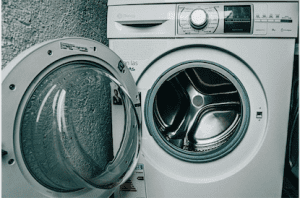Energy bills are a key staple of life that enable households to function properly and be comfortable to live in. However, utilities can be costly for homeowners, landlords and renters alike. According to Energy Star, the typical US family spends on average $2,060 per year on home energy bills.
So how can you save money around the house on energy bills? Dollar Hand presents top tips below on how you can take control of your energy and reduce your bills.
Top Tips on How To Save Money On Your Energy Bills
1. Change Your Habits
It is possible to reduce the money you spend on electricity, water and gas by simply changing your habits. Being conscious of switching off the lights in a room when you leave it, turning off the tap whilst you are brushing your teeth or switching off the radiator when you leave the house can all make a difference in decreasing your energy usage and reduce your bills.
2. Invest in Energy Efficient Appliances
Approximately 13% of a home’s energy costs come from appliances so whilst it can be expensive to replace older appliances with newer energy-efficient models, overall you could end up spending far less since they consume much less energy. For instance, a more efficient refrigerator, dishwasher or air conditioning unit could all contribute towards lower bills each month. Likewise, newer light bulbs such as LED or fluorescent bulbs consume much less energy than typical halogen light bulbs.

3. Take A Shower Instead of A Bath
If you bath regularly, consider having a quick shower instead as this can significantly reduce water usage and lower your water bill. You could also invest in a more efficient shower head as they are not overly expensive and tend to use less water overall.
4. Check Your Insulation
It is worth investigating your doors and windows as drafts can cause your home’s heating and cooling systems to work harder which in turn increases your monthly utility bills. Replacing doors and windows that leak air with more efficient models will help to keep the cold or hot air inside your property. If you are willing to invest, insulating your roof can also stop heat from leaving your home.
5. Use Colder Water in Your Washing Machine
Washing machines use significantly more energy when washing clothes in hot water. You can therefore save on energy usage by washing your clothes in cold or warm water instead. Even reducing the water temperature from 40 to 30 degrees could make all the difference!
6. Move states
If you wish to live in a different state, then this could be a good way of reducing your energy bills since prices vary quite significantly depending on your location in the US. For example, areas prone to extreme temperatures can lead to higher costs due to increased usage of air conditioning or heating systems.
In 2018, Move studied each US state and found that on average consumers in Hawaii paid the most each month for utilities at $730.86 per month, and Idaho paid the lowest at $343.71 per month. See the rest of the results below:
Total Average Costs of Utilities Each Month By State:
| Alabama | $411.78 |
| Alaska | $527.96 |
| Arizona | $441.41 |
| Arkansas | $388.28 |
| California | $437.85 |
| Colorado | $404.25 |
| Connecticut | $496.07 |
| Delaware | $421.99 |
| Florida | $448.99 |
| Georgia | $455.34 |
| Hawaii | $730.86 |
| Idaho | $343.71 |
| Illinois | $403.63 |
| Indiana | $411.36 |
| Iowa | $436.46 |
| Kansas | $422.06 |
| Kentucky | $413.85 |
| Louisiana | $380.79 |
| Maine | $464.45 |
| Maryland | $429.61 |
| Massachusetts | $469.13 |
| Michigan | $410.72 |
| Minnesota | $404.50 |
| Mississippi | $391.46 |
| Missouri | $436.49 |
| Montana | $359.03 |
| Nebraska | $399.45 |
| Nevada | $376.93 |
| New Hampshire | $477.02 |
| New Jersey | $432.72 |
| New Mexico | $392.12 |
| New York | $477.31 |
| North Carolina | $417.91 |
| North Dakota | $411.95 |
| Ohio | $447.30 |
| Oklahoma | $431.90 |
| Oregon | $381.30 |
| Pennsylvania | $430.80 |
| Rhode Island | $521.98 |
| South Carolina | $473.78 |
| South Dakota | $382.57 |
| Tennessee | $402.35 |
| Texas | $409.78 |
| Utah | $350.17 |
| Vermont | $468.30 |
| Virginia | $430.41 |
| Washington | $369.18 |
| West Virginia | $393.39 |
| Wisconsin | $390.65 |
| Wyoming | $392.91 |
So if you are looking for lower monthly bills, you consider moving to states such as Idaho, Utah, Montana or Washington!
Conclusions
The amount a household will pay on energy bills depends on many factors such as your usage patterns, the size and quality of your home and the climate. However, as discussed, there are many changes that households can make that could lead to big savings, even if you don’t want to move to a different state.
Was this article helpful?
Justine is a full-time writer with lots of expertise and a wealth of experience in the financial world. In particular, she specializes in household income and consumer finance across the United States. Follow her articles for useful advice and top tips, guides on how to save money and lots more.




